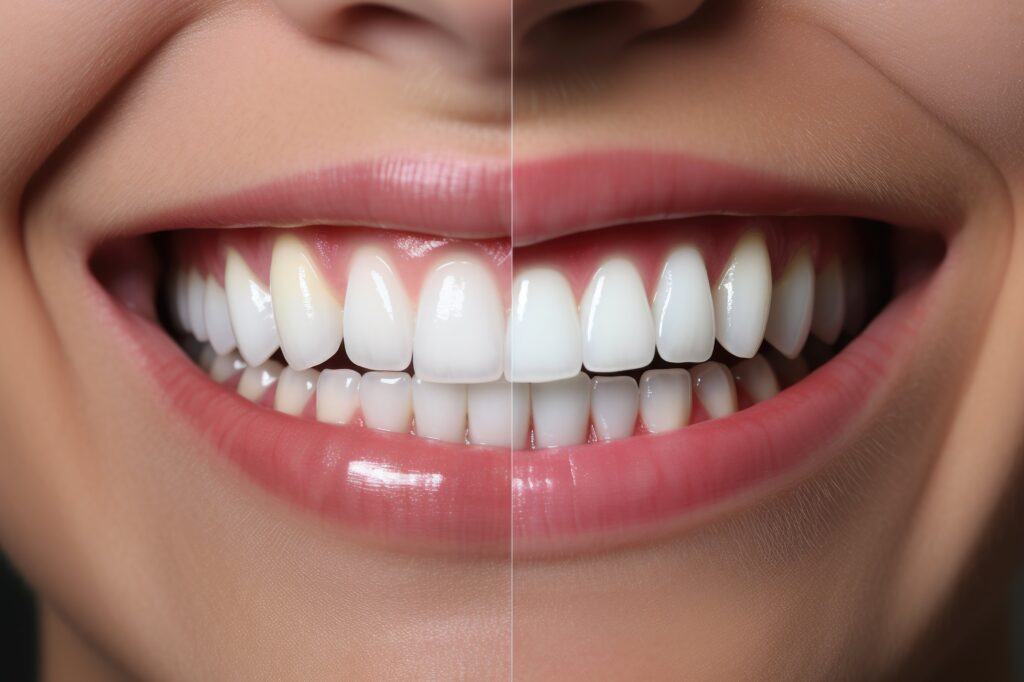A bright, healthy smile can boost confidence and overall well-being. However, for individuals with sensitive teeth, the prospect of teeth whitening can be daunting. This article explores how teeth whitening can affect those with sensitive teeth and offers solutions and recommendations for achieving a whiter smile without discomfort.
Understanding Sensitive Teeth
Sensitive teeth are characterized by pain or discomfort when exposed to hot, cold, sweet, sour, or acidic foods and beverages. This sensitivity is often caused by worn enamel, exposed dentin, or receding gums.
Teeth Whitening and Sensitivity
While teeth whitening can be a safe and effective way to improve the appearance of teeth, it can also exacerbate sensitivity in individuals who already have this condition. The bleaching agents used in whitening procedures can penetrate the tooth enamel and reach the sensitive dentin layer, leading to increased discomfort.
Tips for Sensitive Teeth Whitening
If you have sensitive teeth and are considering whitening, here are some tips to help minimize discomfort and achieve a brighter smile:
- Consult with a Dentist: Before undergoing any teeth whitening procedure, consult with a dentist to assess your oral health and determine if you are a suitable candidate. They can provide personalized recommendations and address any concerns about sensitivity.
- Choose a Gentle Whitening Method: Opt for whitening methods that are less likely to cause sensitivity, such as take-home whitening kits with lower concentrations of bleaching agent or professional whitening procedures that use desensitizing agents.
- Use a Desensitizing Toothpaste: Prior to and during the whitening process, use a toothpaste specifically formulated for sensitive teeth. These toothpastes can help reduce sensitivity and soothe irritated nerves.
- Gradual Whitening: Instead of aiming for immediate results, consider a gradual whitening approach. This can help your teeth adjust to the bleaching agent and minimize sensitivity.
- Avoid Irritants: During the whitening process, avoid irritants that can exacerbate sensitivity, such as acidic foods, beverages, and mouthwashes.
- Maintain Good Oral Hygiene: Brush your teeth twice a day with a soft-bristled toothbrush and floss regularly. Good oral hygiene can help prevent sensitivity and maintain the health of your teeth and gums.
- Consider Professional Desensitization: If sensitivity is a significant concern, your dentist may recommend professional desensitization treatments to help reduce discomfort.
Over-the-Counter Remedies for Sensitive Teeth

In addition to professional treatments, there are several over-the-counter remedies that can help alleviate sensitivity:
- Fluoride toothpaste: Fluoride can help strengthen tooth enamel and reduce sensitivity.
- Mouthwash: Certain mouthwashes contain ingredients that can help desensitize teeth.
- Gum massage: Gently massaging your gums with a soft-bristled toothbrush can help reduce sensitivity.
Remember, it is essential to consult with a dentist if you experience persistent or severe sensitivity. You can, as well, ask the dentist to get the best teeth whitening price in Penang. They can provide a proper diagnosis and recommend appropriate treatment options.
By following these tips and working closely with your dentist, you can achieve a whiter smile without compromising your oral health.



